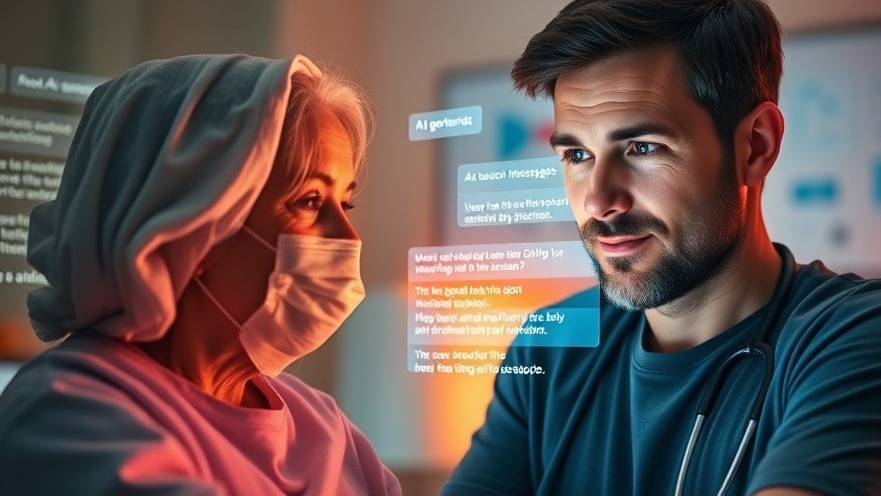
The Rise of AI in Patient Communications
In the evolving landscape of healthcare, artificial intelligence (AI) is proving to be a powerful ally in enhancing patient communication. A recent study conducted by Duke University Health System highlights that while patients generally prefer AI-generated responses in portal messages, their satisfaction diminishes once they learn about AI’s involvement. This paradox raises important questions about transparency and the ethical implications of AI in healthcare settings.
Understanding Patient Preferences: AI vs. Human Responses
The study's findings reveal a clear preference among 1,455 surveyed patients: they rated AI-generated messages higher in satisfaction and perceived usefulness compared to those penned by human clinicians. Yet, once the patients were informed that their responses were AI-generated, their satisfaction ratings dipped slightly. Over 75% of respondents expressed satisfaction across the board, regardless of the message’s authorship. This suggests a significant dichotomy in how patients value AI support—favoring its efficiency but desiring human touch in communication.
Ethical Dilemmas and the Necessity for Transparent Disclosure
As healthcare increasingly adopts AI communication tools, the ethical implications surrounding disclosure come to the forefront. Interestingly, the White House’s AI Bill of Rights advocates for transparency in AI communications, yet what constitutes sufficient transparency remains a topic of debate. The study suggests that a clear but concise disclosure—such as stating, “This message was drafted with the assistance of AI”—could strike a balance. About 33% of participants preferred this phrasing, indicating that a middle ground can be reached to maintain trust while also leveraging technology.
Core Comparisons with Other Research on AI Communication
Supporting evidence from a study conducted at the University of California San Diego underscores AI’s role in alleviating cognitive burdens on healthcare professionals. This research found that generative AI could draft empathetic responses, minimizing the mental exhaustion that often contributes to physician burnout. While the Duke study showcased AI's potential in communication efficiency, the UC San Diego study highlighted AI’s ability to enhance message quality and physician satisfaction. Together, they present a comprehensive view of how AI could transform patient-physician interactions.
Future Predictions: The Path Ahead for AI in Healthcare Communication
Looking ahead, the integration of AI tools could revolutionize communications in healthcare, but only if they are implemented thoughtfully. As more practices adopt these technologies, understanding patient comfort and preferences will be paramount. Continuous monitoring of patient responses to AI-generated communications is needed to ensure that trust and engagement remain intact. Health systems can benefit from iterative feedback loops, adjusting their AI implementations based on patient reactions and evolving preferences.
Building a Trusting Relationship: Recommendations for Practices
For concierge medicine practices seeking to enhance their communications, implementing AI solutions could drive both efficiency and patient satisfaction. However, this must be balanced with transparency. Practices should proactively seek feedback from patients about their experiences with AI messaging, integrating findings to refine communications further. It's also recommended to train staff in blending AI with personal touch—demonstrating that while technology can assist, the heart of patient care remains deeply human.
Conclusion: The Ethical and Practical Balance
The journey of integrating AI into patient communications presents exciting opportunities and critical challenges. Building patient-specific strategies around AI disclosures could forge stronger patient-provider relationships, ensuring all parties are informed and comfortable with emerging technologies. As practice owners dual-track efficiency and ethics, embracing AI may well redefine how healthcare communications are managed and perceived.
Explore how these insights can enhance your concierge practice by focusing on both patient experience and operational efficiency. Strategically integrating AI while remaining transparent about its use may not only improve satisfaction but also position your practice as a leader in the evolving digital health arena.
 Add Row
Add Row  Add
Add 






Write A Comment